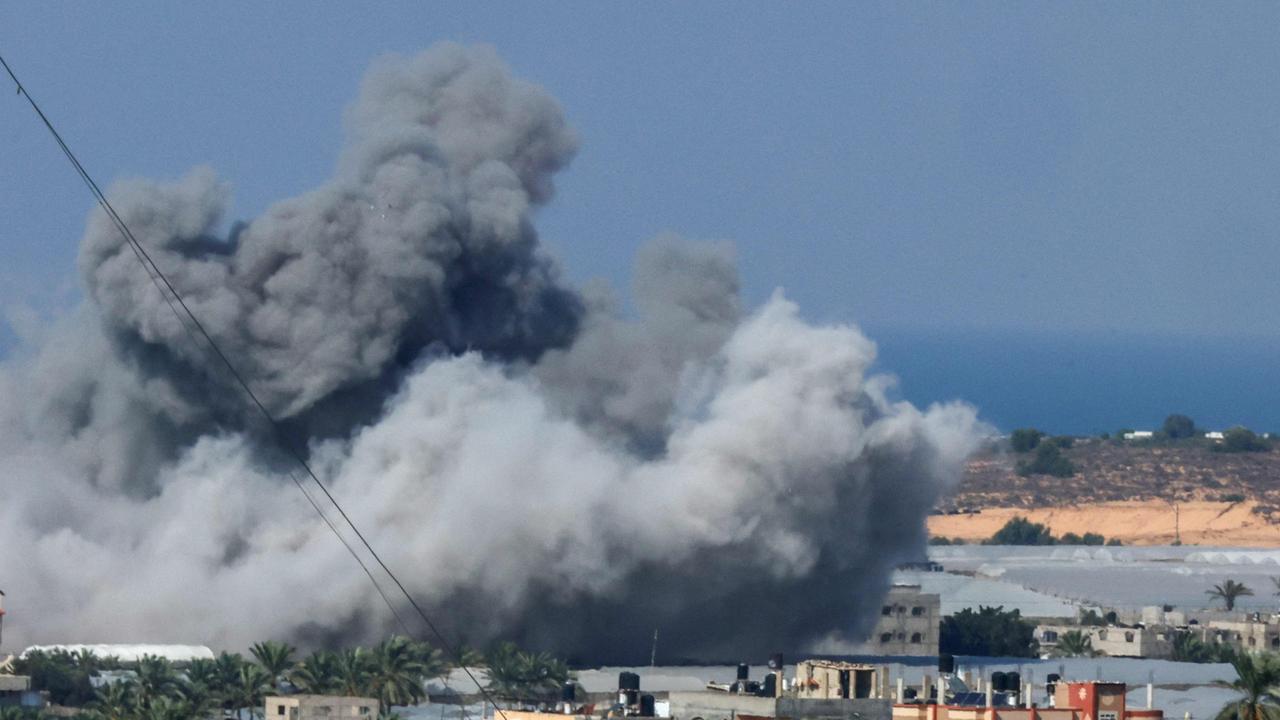[ad_1] The Albanese government is doing “what we can” to help the 45 Australians stranded in war-torn Gaza, Deputy Prime Minister Richard Marles sai
[ad_1]
The Albanese government is doing “what we can” to help the 45 Australians stranded in war-torn Gaza, Deputy Prime Minister Richard Marles said.
Last week, the government said they were aware of 19 Australians in the besieged strip, but Mr Marles confirmed that more than double that amount of people had since made contact with the Department of Foreign Affairs and Trade.
He said that figure “includes families”.
Gaza is without food, electricity, fuel, and other key supplies after Israel ordered a total blockade last week in the wake of Hamas’ deadly attacks last weekend.
Hamas is still holding Israelis hostage and has killed more than 1400 civilians, prompting Israel to launch rockets at the Gaza Strip for the last week.
Israel is preparing to launch a ground offensive at any moment. To date, more than 2700 people in Gaza have been killed by Israel’s retaliatory strikes.
As part of their pledge to destroy Hamas, Israel ordered Gazans living in the northern half of the territory to move south, but strikes have continued.
The only way to safety – through the southern border into Egypt – remains closed.
The United Nations has repeatedly warned about the unfolding humanitarian crisis.
Mr Marles said the situation was “obviously extremely difficult” but the government was doing everything it could to get those Australians to safety.
Mr Marles said DFAT had been “encouraging” the Australians in Gaza to move south.
“We are looking at ways in which, and working very hard to find ways in which we can get those people to safety, and that obviously includes working with other countries around the establishment of a humanitarian corridor out of Gaza.
“That hasn’t happened yet, but we are doing what we can in very, very challenging circumstances.”
Mr Marles said he didn’t have the precise breakdown of who the 45 Australians were, but given there were families caught up in it he’d “imagine” children were among the group.
“There isn’t a humanitarian corridor out of Gaza. But we continue to work with others in the international community to see that established,” he said.
Meanwhile, more than 600 Australians have been ferried to safety out of Israel on government-assisted repatriation flights.
As it stands, the government is not planning any more assisted flights but would “keep defence assets and RAAF planes in the region as a contingency as things develop in case there is a greater need”.
“We feel that we have met the time for Australians to leave and the other point that obviously we’ve all been making is that this is a very volatile and changeable environment,” he said.
“Obviously, we don’t know whether the Israeli air space will remain open and getting into Tel Aviv airport. It needs to remain open. There are a lot of variables which is why we were keen to get people out when there was an opportunity to do so.”
At home, questions are turning to how Australia responds to the unfolding humanitarian crisis.
The government and the opposition have maintained that Israel has a right to defend itself but some, including Foreign Affairs Minister Penny Wong, have called for Israel to show some “restraint” and prioritise the safety of civilians.
The Coalition’s foreign affairs spokesman Simon Birmingham, without using the word “restraint”, said he hoped Israel “has regard for civilian life”.
“We would hope that Israel has regard for civilian life and I think it’s important to note that Israel has shown regard for civilian life to date, that Israel has provided warnings in relation to regions being targeted by air strikes,” he told ABC Radio.
“It’s provided those warnings in advance so that people can move and evacuate.”
As it stands, many of the Gazans who have fled south have been killed by air strikes.
[ad_2]
Source link



COMMENTS